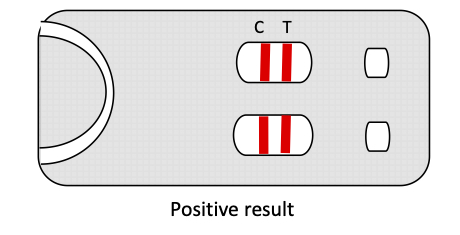
There was a front-page article in the New York Times today how Italy may be using antibody testing to verify people who can go back to work. The article told how Italy is following Germany in using a blood test that identifies antibodies (immune proteins) specific for COVID-19 as a way to clear individuals to go back to work.

The concept is that people who recover from a COVID-19 infection develop immunity that will protect them from future infection and thus are safe to travel anywhere or interact with anyone. The Italians even are reported to be giving people a certificate based on the blood test! From my perspective, several issues come up when applying a blood test as a policy.
I am one of the biggest advocates for antibody (blood) testing for coronavirus antibodies. I think this will give us a much better idea of the prevalence (frequency) of this infection in the US population and help us determine the risks of future outbreaks of COVID-19. But using any laboratory test as a direct policy determination requires a knowledge base and certainty we just don’t yet have.
There isn’t data showing the degree or duration of protection one gets based on antibody testing. There have been particular concerns about the duration of protection, since immunity to other seasonal coronavirus infections wanes in less than 18 months.
In order to investigate these questions, prospective studies need to be done to determine the utility of antibody testing in protecting people with work-related COVID-19 exposures, especially health care workers. We plan on doing one of the studies at the University of Michigan, and I will keep you informed on that.
The commentary from the readers of the NYT article was actually more interesting than the article. Issues were raised about whether we were penalizing people who performed social distancing or were harming individuals with immune problems who could not make antibodies. These are important societal questions to address as we move forward and decide how to allow people to normalize their lives.
Finally, there was also a nice podcast by Sharon Begley @Statnews about the use of antibody testing and other approaches to normalize life. While all would agree that antibody testing alone cannot control a future pandemic, with a combination of antibody testing, effective drugs (both antivirals and anti-inflammatories), and social control mechanisms, we can hope that a future COVID-19 outbreak will be better controlled.
Thank you for your continued updates and knowledge! Feeling unnerved at the moment in reading that conjuctivitis (pink eye) has been linked to Covid 19 (Study out of China?) Very concerned if this is accurate as our 7 month old grandson was diagnosed with conjuctivitis 2 days ago and has antibiotic drops. Pediatrician did not physically see him, rather, made the decision to prescribe after hearing description from his mom via phone call. No temp. Acting normal…..but still…….wish I had not just read what I did! Thoughts? Thank you.
LikeLiked by 1 person
Likely not COVID but serious illness in that age group is exceedingly rare.
Just keep a close eye.
LikeLike
There may well be light at the end of these dark days!
LikeLiked by 1 person
Jim. If COVID-19 mutates (or is mutating), to what degree will antibodies protect someone from a new strain/variant of COVID-19 they actually contracted? I know annual flu shots are based upon “last year’s flu” in the hope it will substantially address the current year’s influenza. Do antibodies function in a similar manner?
LikeLiked by 1 person
Not clear at all. The good news is that this virus does not seem to be mutating like the flu. Also, it has optimized itself so much that any mutation might make it less infectious-almost like an attenuated vaccine strain. We will see going forward.
LikeLike